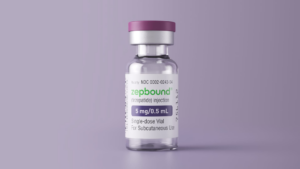Ro Partners with Eli Lilly to Bring Affordable Weight Loss Solution to Patients
In a significant development for those looking for effective weight loss treatments, the direct-to-consumer healthcare startup Ro has announced a new partnership with Eli Lilly. This collaboration allows Ro to offer affordable single-dose vials of the weight loss drug Zepbound, marking a pivotal shift in how patients can access this popular medication. Extreme Investor Network is here to break down exactly what this means for patients and the healthcare landscape.
A Seamless Patient Experience
Ro’s innovative platform now provides a "complete end-to-end" experience, meaning patients can receive a diagnosis, obtain a prescription, and have their Zepbound vials delivered directly to their homes—all on a single platform and app. This integration with Eli Lilly’s direct-to-consumer website, LillyDirect, is especially noteworthy, as it streamlines what has traditionally been a convoluted process. As Ro co-founder and CEO Zachariah Reitano noted in a recent CNBC interview, "Patients usually have to go to multiple places to get Lilly’s drug, like the doctor’s office then a pharmacy. This integration really creates a seamless patient experience."
For anyone who has dealt with the complexities of managing healthcare needs, this advancement is a game changer. Patients no longer need to navigate multiple healthcare settings; they can now manage everything from their diagnosis to medication delivery from the comfort of their own home.
Cost Considerations
One of the most compelling aspects of this new offering is the pricing. While the autoinjector form of Zepbound can cost around $1,000 per month before insurance, the newly available single-dose vials represent a more accessible option. Monthly costs for the vials are $399 and $549 for the 2.5 mg and 5 mg doses, respectively. This pricing strategy not only makes the drug more affordable for uninsured patients but also provides a viable alternative for those who might struggle to afford the higher-priced injectors.
Ro’s approach reflects a broader trend in the healthcare industry—providing patients with more affordable treatment options without compromising care quality. It’s an innovation that could reshape the future of medications for chronic conditions, especially as the demand for GLP-1 medications continues to rise.
The Rationale Behind the Shift
Why is Eli Lilly pushing so hard to expand access to Zepbound through partnerships like this one? For one, the weight loss injection market has been saturated with demand for expensive treatments such as Zepbound and Novo Nordisk’s Wegovy, leading to widespread shortages. Eli Lilly and Novo Nordisk accelerated their manufacturing capabilities to address these shortages, and this partnership with Ro appears to be a strategic maneuver to further ensure that patients have reliable access to their treatments.
Moreover, compounded versions of GLP-1 medications have gained traction amidst a limited supply of branded medications, leading to potential safety concerns. Eli Lilly’s efforts to expand access aim to safeguard customers by directing them toward trusted, scientifically validated versions of their medications.
Looking Ahead
As the conversation around drug pricing and accessibility continues, healthcare leaders like Ro are stepping into the spotlight. Not only are they meeting a significant consumer demand, but they are also pioneering a model that other healthcare startups could follow. The FDA is currently reviewing the status of Zepbound on its drug shortages list, a development that could further impact the availability of compounded versions of the drug.
Reitano has emphasized that Ro aims to support patients in finding the most effective and affordable treatments, reiterating their commitment to navigating the complex laws and regulations regarding drug accessibility. As more patients take charge of their health and explore direct-to-consumer healthcare options, partnerships like this one are changing the narrative around treatment access and affordability.
At Extreme Investor Network, we believe that innovations like Ro’s partnership with Eli Lilly represent a transformative moment in healthcare. This not only benefits patients seeking effective treatments but also challenges industry norms, paving the way for a future where healthcare is more accessible and equitable for everyone.
Stay tuned for more insights on how such collaborations are shaping the future of healthcare and investment opportunities in this sector!

